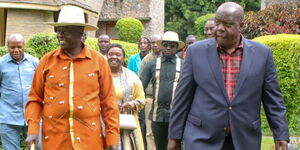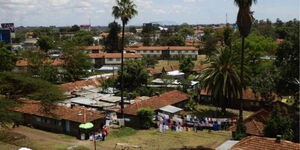The government has announced changes to the country’s animal vaccination system, a move that will affect livestock owners nationwide.
President William Ruto on Wednesday, June 4, revealed that the government would introduce the e-vaccination system in animal vaccination in a move they say would bring positive reforms in the critical sector.
Ruto announced after a meeting with the Council of Governors (CoG), noting that the e-vaccination would lead to the government tracking vaccinated livestock and record-keeping for livestock owners.
“Hosted governors to consult and review progress on the implementation of key intergovernmental development projects,” he noted.
“We will also enhance animal traceability by registering livestock farmers and introducing the e-voucher system for animal vaccination,” Ruto added.
The move, as per Ruto, drew inspiration from the e-voucher fertiliser subsidy programme, which is currently being implemented.
In the e-voucher fertiliser system, farmers register for the programme and receive e-vouchers, which they can then use to purchase subsidised fertiliser at designated locations, such as National Cereals Processing Board depots or agro-vet stores.
To receive the e-voucher, farmers first need to register through the Kenya Integrated Agriculture Management System (KIAMS). Registered farmers then receive e-vouchers via SMS or other digital means.
Critically, the system provides a central database that ensures each farmer is allocated the correct amount of fertiliser, something the government is seemingly hoping to replicate in the animal vaccination.
In the animal vaccination exercise, the government targets to vaccinate 22 million cattle and 50 million goats and sheep.
Even though the exercise received a lot of backlash, Ruto argued the move would be critical in eradicating foot-and-mouth disease as well as PPR disease.
The Kenya Veterinary Association (KVA) rejected the move and highlighted four risks warranting the postponement of the mass vaccination exercise.












